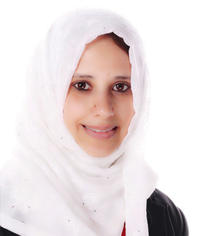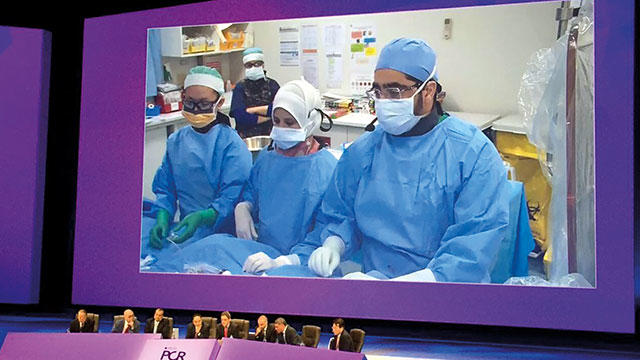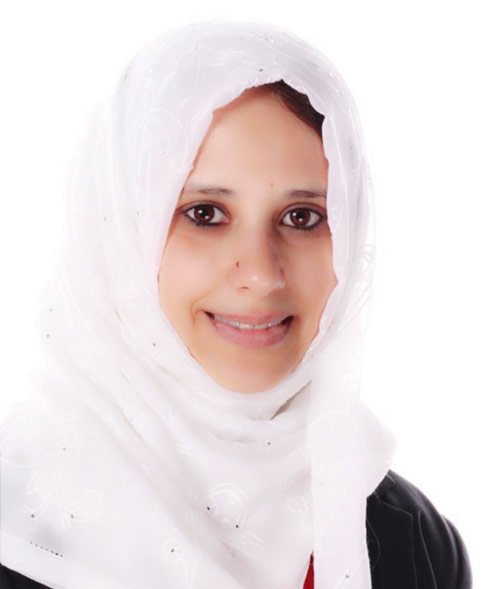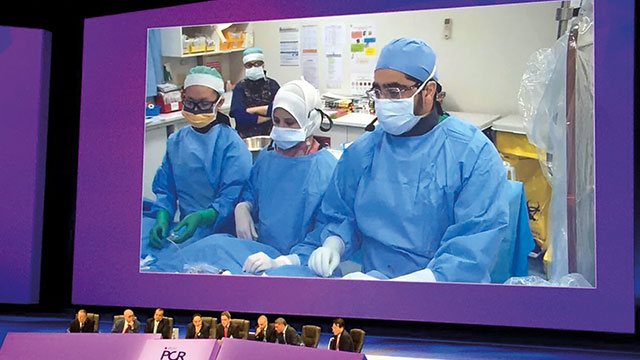"I believe in mentorship" - An interview with Mirvat Alasnag
Let's take an interest in the way Dr. Alasnag, woman interventional cardiologist in Saudi Arabia, views her profession.
A mentor is someone who can guide and open doors, but can also provide honest feedback and constructive criticism. Mentorship is key and the mentor can be a man or a woman.
Why are there still so relatively few women interventional cardiologists? Do you think that working conditions (e.g. exposure to radiation) may be an impediment on women embarking on this career path?
There are several reasons for fewer women in interventional cardiology.
Firstly, we haven't addressed radiation safety adequately. Educational material promoting better awareness of radiation safety measures to protect women operators from a lifetime risk of cancer and cataract should be shared repeatedly and started early in training.
More importantly, the myth of radiation exposure during pregnancy hasn't been debunked yet and we should provide platforms to discuss this openly and scientifically.
Secondly, we need to emphasize core and muscle strengthening exercises that help to avoid musculoskeletal complications resulting from wearing lead aprons over one's career.
Finally, flexible hours and a work environment that enables women to undertake family commitments and the designation of lactation rooms would encourage recruitment of women in the field.

Mirvat Alasnag
What made you choose this specialty?
During training, I was instantaneously attracted by this procedure-based specialty. The gratification is immediate and the impact on our patients' well-being is tangible.
Furthermore, this is a rapidly growing field that challenges us and stimulates us all along. There isn't a dull moment in interventional cardiology from both a clinical and a research perspective.
What is the main obstacle you have encountered to become an interventional cardiologist? How did you manage to overcome this?
It is difficult to balance family and work. It is not uncommon that I'm home with my family and get called in to work for emergencies and vice versa.
This is a very demanding and competitive field where you cannot afford many distractions.
I find that if you build a strong working relationship with your colleagues, they are happy to help you as the need arises. However, this is always a two-way street and often flexibility is reciprocated.
From your point of view, what are the main assets you may have as a woman, compared with your male colleagues?
Patients are most vulnerable when they are in our cathlab or in the hospital in general. As women, we frequently empathize with our patients and are able to deliver comprehensive care that goes beyond stents and DAPT and includes social support, education, and nutritional advice.
Having said that, I generally avoid generalizations. I have seen male colleagues who are equally attentive to such needs.
Do you feel your patients have a different attitude to you because you are a woman? Do you feel your colleagues treat you differently because you are a woman?
Unfortunately, patients - and even the medical community at large - are yet to see women as competent leaders in this field. There is a subconscious (sometimes conscious) bias that we have to overcome.
In my experience, a combination of being young and being a woman is perhaps the most challenging.
Maintaining a professional demeanour and honest communication with patients, administration, and colleagues often permits us to overcome such an obstacle.

What advice can you provide to young women fellows wishing to pursue a career in interventional cardiology?
I believe career shadowing is important. No matter how much we speak of this field, it isn't like someone living it for even a brief period to get a better understanding of the nature of the work.
I also believe in mentorship. A mentor is someone who can guide and open doors but can also provide honest feedback and constructive criticism that enable a woman to grow. Mentorship is key and the mentor can be a man or a woman. Most important is mutual trust for it to be meaningful.





